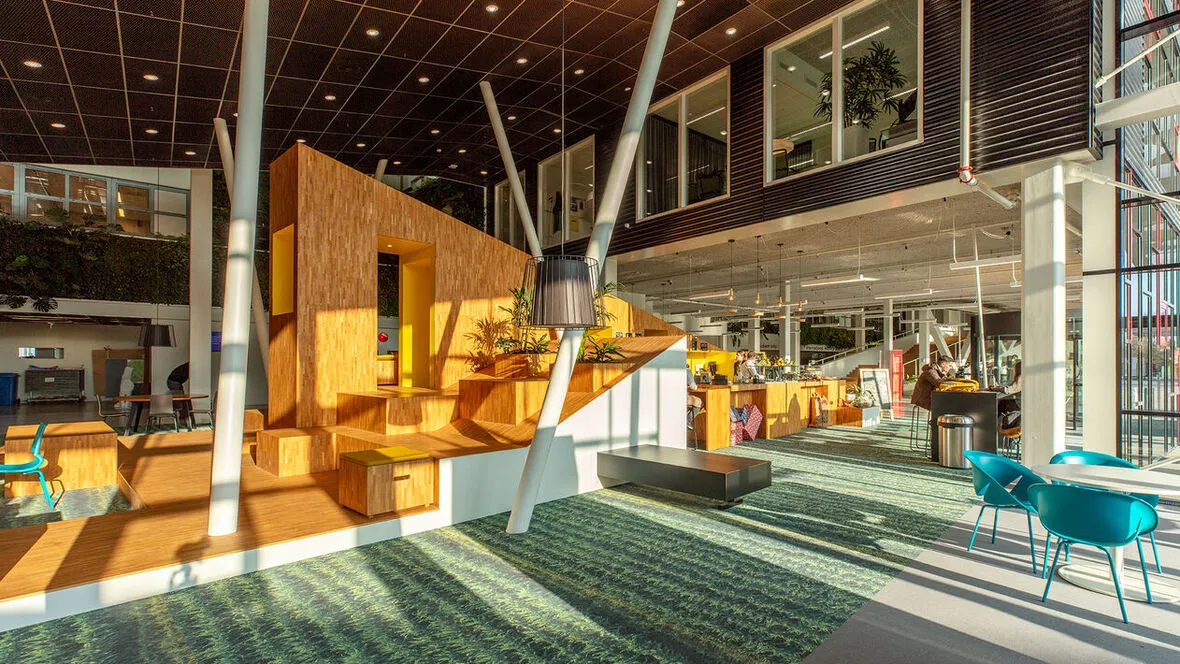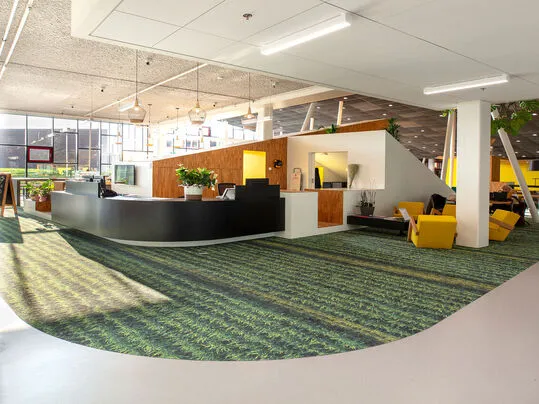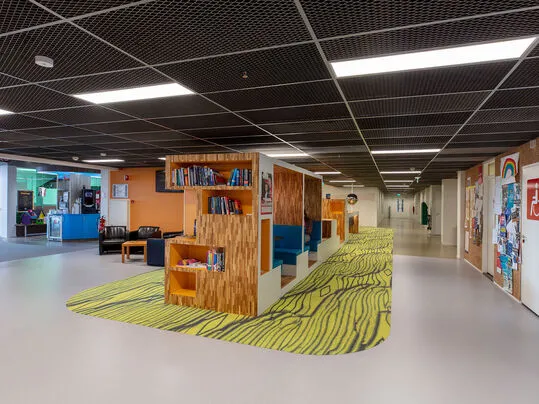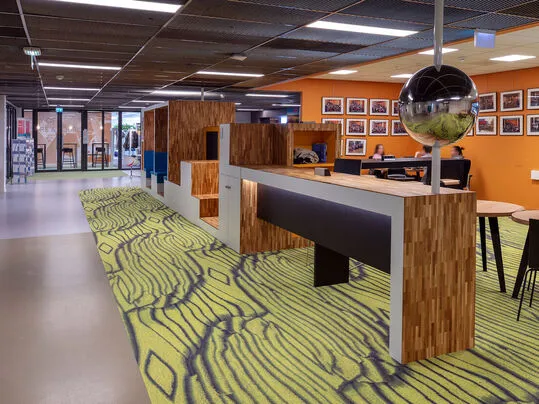Education as a journey
Since 2012, the main building at NHL Stenden Hogeschool has been extended by 4,500m² and partially renovated.

Project Manager for the extension & renovation, Siebrith Hoekstein, architect Erik van Wel of BRTArchitecten and Education Segment Manager at Forbo, Marieke Meulman discuss the project’s success. Siebrith: “We set out our infrastructure plan in 2012: it was getting cramped and we needed to expand. We began in earnest in 2015, looking for a recognisable building for the Hotel Management School, which proved a challenge. We found a space in the former De Haak management and administration building. In 2018, Stenden merged with NHL to form NHL Stenden. Because teaching couldn’t be disrupted, we tackled the major redevelopment and renovation in stages; the latter also including renovating the characteristic windmill on our site in 2018. Our central theme was the integral workplace environment (IWE), creating meeting areas that naturally combined working and meeting and that each had their own identity. We were already using open-plan workspaces, but appreciated that the large study zones felt a little impersonal to our partly international student base. So we decided to give the Hotel Management School more of a lobby look - as though you were entering an actual hotel. It needed to be lavish, and most of all, have that hotel feel to it.”


Erik: “The redeveloped section of the Hotel Management School forms an integral part of the whole. At strategic places throughout the entire 30,000m2 building - such as staircases and central walking routes - we created areas with ‘travel destinations’, as it were. The NHL Stenden slogan is in fact education as a journey. Given the international nature of the school, with over 60 different nationalities, we wanted to make the travel element tangible. Not literally as in flags or imagery, but by giving the various zones a different carpet in the form of a landscape. You feel like a traveller who’s arrived at their destination. When you travel somewhere and arrive at your accommodation, you’ll often find a bookcase of books that people before you have left, such as Lonely Planet, for example. We created bookcases like that at each of the destinations, the largest being a super secretary desk measuring 30 x 45 meters and featuring lots of little drawers for all of NHL Stenden’s secrets. We also wanted to make the notion of human connection more evident. Not through TV screens, but in a more analogue way. At the Nieuwe Kerk in Amsterdam, I visited an exhibition by artist Jeff Koons. He had meticulously copied a classical painting and hung a large mirrored sphere up in front of it. In the sphere, you could see your own reflection, the painting and the interior of the Nieuwe Kerk. It created a sense of togetherness, yet timelessness. Art is about storytelling. So I hung a sphere like that by each of the pieces of furniture in Stenden, to make you really conscious of exactly where you are at that moment in time.
Paradoxically, Coronavirus has meant that, despite having to social-distance, we are experiencing greater connection. For example, everyone in the supermarket is now making eye contact. I think it’s an interesting subject, the theme of ‘distant yet connected’.” Siebrith: “And it’s clear how quickly education is responding to the new situation. Doing assessments remotely had always been tricky. But now, everyone has seamlessly switched over to digital learning. It never would have happened so quickly under normal circumstances.”
Erik: “It makes you think differently about learning and meeting in relation to physical spaces. Recently I had the idea of making a kitchen in each of the various meeting areas. Because when you’re travelling, it's really nice to cook and share experiences with fellow travellers: what I remember most about my period of study abroad are all the tastes and smells at the school, not what we learned in class. Another thing this situation has taught me is that education buildings change quickly, but human beings evolve more slowly. Humans will always need social contact, interaction and the feeling of being at home in a place. The theme ‘education as a journey’ ties in well with that.”
